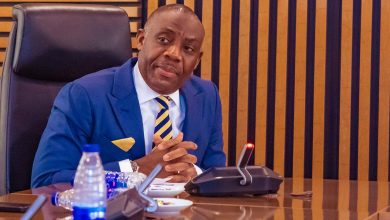Online Controversies Surrounding Late President Buhari’s Administration
When news broke on the 13th of July, 2025, that Nigeria’s former president, Muhammadu Buhari, had died, social media went into overdrive. While state officials, family members, and close allies gave tributes and offered prayers, a different kind of response played out online. The internet quickly split into two, with one side mourning his passing and the other, used the moment to reopen old wounds from his time in power.
According to reports, late President Buhari, who died at the age of 82 after a long battle with leukemia, passed away at a private clinic in the United Kingdom. His body was flown back to Nigeria and buried in his hometown, Daura, Katsina State, on July 15, 2025. Following his death, discussions about his legacy, many controversial decisions, policies, and moments that defined his administration, surfaced.
Many Nigerians saw the news as an opportunity to express long held frustrations. One of the most vocal reactions came from DJ Switch, the activist known for livestreaming the 2020 #EndSARS protest at Lekki Tollgate. Shortly after the announcement of Buhari’s death, she posted: “RIP MF. One down.” In a follow-up video, she said, “Please tell me what is Buhari’s achievement apart from destroying Nigeria. When you are a bad leader, people will drink to your demise.”
Her comment drew mixed reactions. While some applauded her courage to speak her truth, others, including APC chieftain Joe Igbokwe, called her remarks “nauseating” and accused her of bringing shame to the country. DJ Switch clapped back, accusing Igbokwe and others like him of being complicit in defending a failed system. “You are defending killers but attacking survivors. History will write your name in the footnotes under failure,” she wrote.
Even public figures not known for political commentary joined the conversation. Reality star Tacha wrote, “No matter your views, Muhammadu Buhari was a major part of Nigeria’s story. RIP.” It was a soft but respectful take that acknowledged his importance in national history. On the other hand, controversial singer Portable claimed in a video that Buhari was the one who ordered the 2020 Lekki shootings, insisting he had more responsibility than is often claimed. He even mocked the public’s reaction, saying most Nigerians were focused on a Chelsea football match the night Buhari died.
Nigerians abroad also weighed in. Dr. Kandibe Ejiofor, sister to actor Chiwetel Ejiofor, criticized Buhari’s health choices, saying, “Served as Nigerian president for 8 years! Died in a UK hospital. What a shame he couldn’t do anything for the state of healthcare in Nigeria.” Her words highlighted a key complaint that Buhari never built the kind of health system he could trust with his own life, yet expected ordinary citizens to survive on it.
These responses, though controversial, opened up an important national question. Should the death of a public figure silence critical reflection? Or is death the exact time to assess the true cost of leadership?
With that in mind, other voices called for empathy. Former actress Regina Askia and influencer Sonia Ighalo pleaded for empathy. They called for Nigerians to show restraint and remember that no matter one’s opinion, death is a universal truth that deserves some respect. “Nigerians seem to lack empathy,” Sonia wrote. “This is someone’s father, husband, uncle and son.” Pastor Tunde Bakare also added a more reflective tone. While recalling private moments where he confronted Buhari over national issues, Bakare reminded the public that Buhari was not solely to blame for Nigeria’s woes. “He was not an economist,” he noted, “and had people in charge of that,” making it clear that leadership failure in Nigeria is systemic, not personal.
Some voices, like Pere Egbi, took a more balanced approach. In an open letter to President Tinubu, he urged healing, but also reminded Nigerians not to celebrate death. “Blasting him while alive is fair. But once he’s gone, for the sake of those he left behind… show some restraint,” he said. Yet, fiery comments were made.
Kemi Olunloyo described Buhari’s death as a “reunion in hell,” dragging her late father into the narrative. Influencer Tunde Ednut questioned the idea of karma entirely, pointing out that politicians often die peacefully, despite the chaos they leave behind. “There is no karma for politicians,” he wrote. “Buhari enjoyed his life and lived 82 years. He escaped all consequences.”
All these online reactions following Buhari’s death are not surprising. His time in office was deeply polarizing. Buhari’s legacy, like many before him, is not just written in state documents or campaign posters. It is written in the lived experiences of everyday Nigerians, those who mourned, those who suffered, and those who refused to be silent.
Many felt disconnected from his style of governance, which at times seemed distant, with little room for real public dialogue. From the economic hardship and perceived silence during national crises, to every road built and subsidy removed, there were moments of pain. His health trips abroad reminded Nigerians of a broken system they were forced to depend on. The silence during the EndSARS protests created a lasting memory of betrayal, especially among the youth.
But while criticism is valid, and indeed necessary in a democracy, we should understand the importance of compassion. The internet has made it easy to forget that behind public figures are families, loved ones, and humans who grieve like everyone else. Death should not always be used as a battleground. The time to challenge leaders is when they are alive, when they still hold the power to make changes.
We at Newskobo believe Nigerians have every right to express disappointment with the past. But we must do so with the intention, to teach, to improve, and to remember, not to destroy. Nevertheless, the death of late President Buhari should remind our leaders that legacy matters. That empathy is not weakness. That silence during injustice is not strength. That outrage whether offline or online is not just noise. It is history being written in real time. And like all history, it will be debated.



